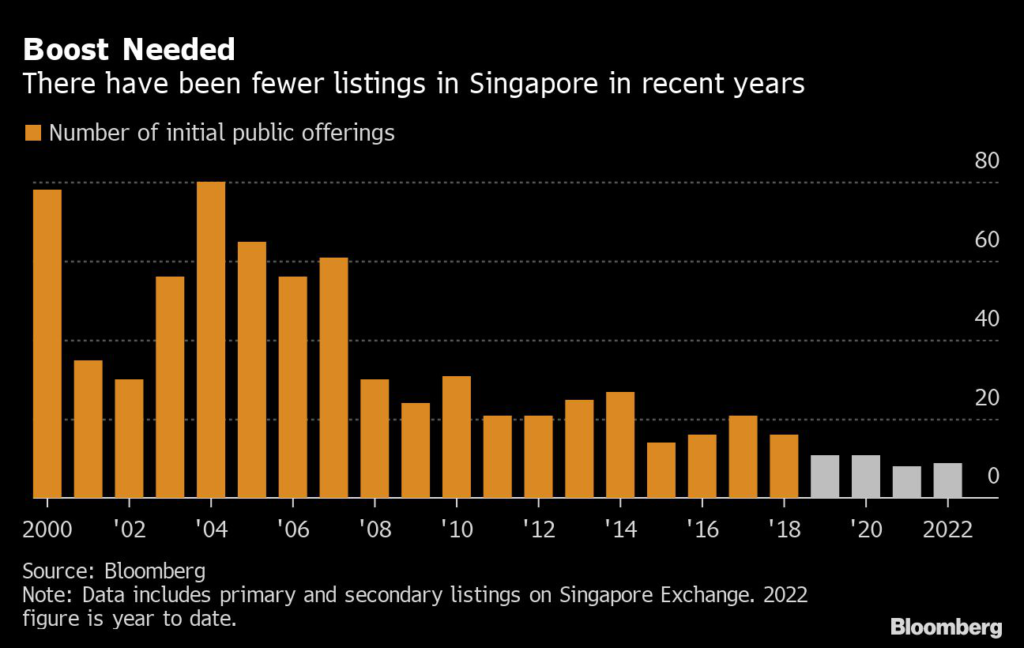(Bloomberg) — Singapore Exchange Ltd., which has seen stock listings dwindle over the years, is betting on a reversal in fortunes as companies in China look to hedge political risks and Southeast Asia’s unicorns seek to tap the market, according to a top executive.
The bourse may see 30 to 40 first-time and secondary listings annually within the next five years, Pol de Win, SGX’s head of global sales and origination, said in an interview — more than double the average of about 13 listings a year since 2017. SGX is stepping up talks with Chinese firms that are seeking alternatives to a US or Hong Kong listing as well as to raise their profiles in Southeast Asia, he said.
“If some of these companies are really going to be forced to delist in the US, they would still have an international trusted venue here where they can attract and interact with the global investor universe,” said de Win, who joined the exchange in July from Goldman Sachs Group Inc. “Our pipeline is stronger than it’s ever been in a long period of time.”
Some global trends may work in SGX’s favor. More Chinese firms with US-listed shares may look at alternative venues amid delisting risks stateside, following in the footsteps of electric carmaker NIO Inc. that debuted in the city-state without raising funds last month. Blank-check companies may also consider different venues with the US tightening disclosure rules, while Southeast Asia is becoming a breeding ground for tech-backed billion-dollar businesses.
These trends could help the Singapore exchange regain some ground after missing out on big-ticket initial public offerings to other hubs. Stock listings have slumped in recent years amid liquidity concerns, prompting a government-backed effort last year to try to bolster the market. The primary and secondary listings that SGX is targeting will likely have a market value of at least S$500 million ($364 million), according to de Win.
He said SGX is in talks with firms in China and Southeast Asia that operate in areas such as financial tech and consumer tech, as well as real estate investment trusts and blank-check companies across the globe. “Our team actively covers, interacts with more than 100 of these companies,” the Singapore-based executive said. So far this year, three blank-check firms have listed on the exchange.
IPO activity, which has been slammed by this year’s market turbulence, is expected to revive by the end of the year globally, de Win said. “It’s very rare for markets to remain shut for three quarters in a row because at the end of the day, people need access to liquidity,” he said.
Here are some other comments from de Win:
- The bourse isn’t yet considering a review of a framework for listing special purpose acquisition companies that was released in 2021. This differs from the US Securities and Exchange Commission, which proposed increased disclosures for the vehicles earlier this year, prompting some major banks to rethink their work on these listings
- SGX is working on both rolling out an exchange-traded fund trading link with Shenzhen and making a derivatives trading link with India operational in the second half of 2022
- The introduction of derivative contracts in battery metals such as cobalt metal, cobalt hydroxide, lithium carbonate and lithium hydroxide is still in the works
(Updates with number of SPAC listings in Singapore in sixth paragraph. A previous version corrected range of targeted market value for listings in fifth paragraph.)
More stories like this are available on bloomberg.com
©2022 Bloomberg L.P.











